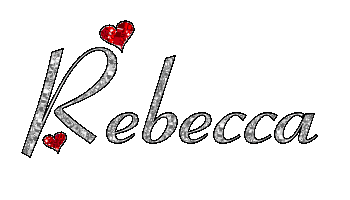Picture this: you're reading a book to your young child, one that you've heard being recommended by many other parents. Only your child finds it boring and will listen to you politely, just waiting for the end.
This is what happens in schools all over the world, every blessed day – children waiting for the bell to put an end to a boring lesson. Maybe the next class will be something they like, maybe not.
Let's talk about us – grown-ups. We are not the same! Some of us like music, others are into sports, yet others would spend hours looking at cryptocurrency charts and never get bored. Why would our children be any different?
Some kids are good at maths, but hate writing essays. Some kids have no problem memorizing all sorts of facts, but are useless when it comes to solving a simple equation. Why force them spend a lot of their childhood on things they hate and will never use in their lives instead of letting them focus on things they find fascinating?
Public schools today cannot accommodate such an idea of letting children study what subjects they find interesting. They were not built for that and they don't have the resources to do that. Yet, such a thing is possible and the perfect example are the democratic schools, such as the Sudbury Valley School, first established in 1968 in Massachusetts. Last year, there were over 20 democratic schools in various countries.
The Sudbury type of school has no traditional classes, no imposed subjects and children are allowed to do what they want with they're time. There are, of course, educators available and children can wander in and ask about something they might be interested in. Pupils can spend their day alone, doing whatever they want, or team up for a project, little kids together with older kids. And, these schools do work, as strange as that may seem to us, who for the most part have been educated in public schools.
The underlying principle in this concept is that children have a natural desire to learn. Let's not forget that they start by teaching themselves how to speak and walk. If a child sees one of his parents doing something that seems interesting he'll want to know how it's done.
Hers is what well-known psychologist Peter Gray, author of a pioneering book called 'Freedom to Learn' has to say about the Sudbury Valley School, where his own child studied:
”The most important resource at the school, for most students, is other students, who among them manifest an enormous range of interests and abilities. Because of the free age mixing at the school, students are exposed regularly to the activities and ideas of others who are older and younger than themselves. Age-mixed play offers younger children continuous opportunities to learn from older ones. For example, many students at the school have learned to read as a side effect of playing games that involve written words (including computer games) with students who already know how to read. They learn to read without even being aware that they are doing so.”
Waldorf schools use some measure of flexibility in allowing children to decide what they want to do at a particular time of the day, but in the end they still get to study a pretty standard curriculum.
When I started homeschooling my son I imagined we'll be following the standard curriculum, too. And we did, but only for a brief period of time, as it became clear that there are things he likes and things he wouldn't hear of. I did try to impose my views, I admit (I have a teacher's degree, after all, but in the end I discovered it is much more useful to let him decide what he wants to learn. When he wants to learn. Our reading 'classes' in our native tongue, Romanian, were a complete nightmare. Even today, at 10 years old, he still dislikes reading in Romanian, but he reads English almost flawlessly. A language he learned on his own mostly, over the Internet. There are English books he's read several times and it is very rare he wants to buy something in Romanian.
Likewise, he doesn't like writing by hand. He could, but he wouldn't. Instead, he's very good at typing and, lately, he's even been posting on several sites, Steemit included, without any help.
As an educator, my mission is to offer him opportunities to explore as many subjects as possible and let him decide.
We went to music school and it was fun, but he wouldn't continue after the summer program.
Computer school, yes, that was a success, as it is what he loves most. We went every Saturday for a whole year, until they had nothing more to offer.
Obviously, he's not getting a standard education, but he learns new things everyday, as he is driven by his natural curiosity.
Maybe his interests will change in a few years and my job will be to give him the resources needed to further his education.
In a dream world, all schools should be like this – a place where children find their intellectual nourishment and learn whatever they want whenever they want.

Thanks for reading





This is awesome I really felt your key points here however I believe you really hit the nail on the head I grew up thinking I was dull because I didn't understand maths but little did I know it wasn't so.
Awesome blog post here, I'm sorry my voting power is low
Downvoting a post can decrease pending rewards and make it less visible. Common reasons:
Submit
this subject is very importand cause our youth is our future ....learn and absorb all the things that's important in life, each and every single day I think of our kids and our future, they are very important to us...I pray each and everyday for our kids,...bless them Always
Downvoting a post can decrease pending rewards and make it less visible. Common reasons:
Submit
This is impressive to read ty...
Downvoting a post can decrease pending rewards and make it less visible. Common reasons:
Submit
Truly the truth 💪🏻
Downvoting a post can decrease pending rewards and make it less visible. Common reasons:
Submit
Well said, we should be democratic with our children, and students. We should however monitor them so that they don't go astray in the course of learning.
I remember my Dad pressurised me in opting for Architecture in the university, but I stood my ground that I want to be a microbiologist, here I am, fulfilled in the field.
The younger ones can't however do this, so it is up to the parents, teachers to discover what he/she is good at and try to mentor them in that aspect
Downvoting a post can decrease pending rewards and make it less visible. Common reasons:
Submit
very good read, thank you :) I totally relate, I wanted to leave high school and finish through an art college but was forced to get a "proper" education. I'm nearly thirty now and am still struggle to find my way because I was taught that as a creative I would never make a decent living and that I MUST work in the system, in a 9-5 job. Luckily I'm finally branching out as a freelance writer...very scary though!
Downvoting a post can decrease pending rewards and make it less visible. Common reasons:
Submit